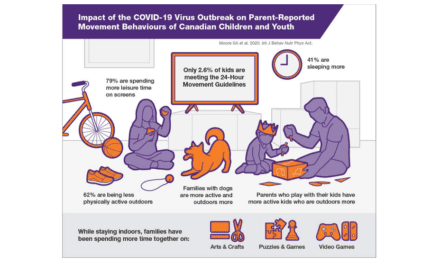Former HALO student Danijela Maras is lead author on a paper, “Screen time is associated with depression and anxiety in Canadian youth,” that was recently published in Preventive Medicine. Citation details and a summary of the paper are below.
Maras D, Flament MF, Murray M, Buchholz A, Henderson KA, Obeid N, Goldfield GS. Screen time is associated with depression and anxiety in Canadian youth. Prev Med. 2015 Feb 2. pii: S0091-7435(15)00031-6. doi: 10.1016/j.ypmed.2015.01.029. [Epub ahead of print]
ABSTRACT: Objective. This study examined the relationships between screen time and symptoms of depression and anxiety in a large community sample of Canadian youth. Method. Participants were 2482 English-speaking grade 7 to 12 students. Cross-sectional data collected between 2006 and 2010 as part of the Research on Eating and Adolescent Lifestyles (REAL) study were used. Mental health status was assessed using the Children’s Depression Inventory and the Multidimensional Anxiety Scale for Children-10. Screen time (hours/day of TV, video games, and computer) was assessed using the Leisure-Time Sedentary Activities questionnaire. Results. Linear multiple regressions indicated that after controlling for age, sex, ethnicity, parental education, geographic area, physical activity, and BMI, duration of screen time was associated with severity of depression (β=0.23, p<0.001) and anxiety (β=0.07, p<0.01). Video game playing (β=0.13, p<.001) and computer use (β=0.17, p<0.001) but not TV viewing were associated with more severe depressive symptoms. Video game playing (β=0.11, p<0.001) was associated with severity of anxiety. Conclusion. Screen time may represent a risk factor or marker of anxiety and depression in adolescents. Future research is needed to determine if reducing screen time aids the prevention and treatment of these psychiatric disorders in youth.
Click here to read the paper in full for free.





